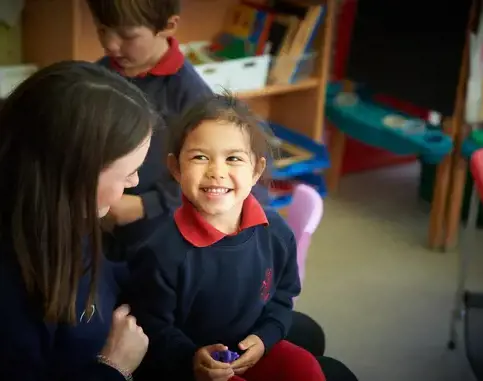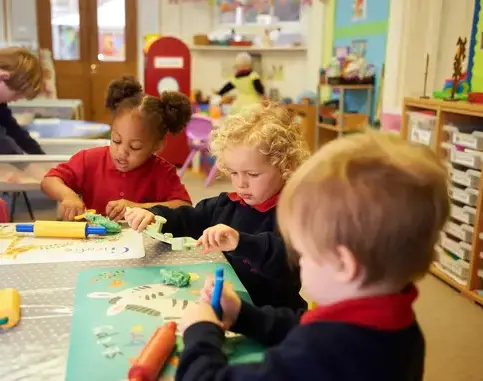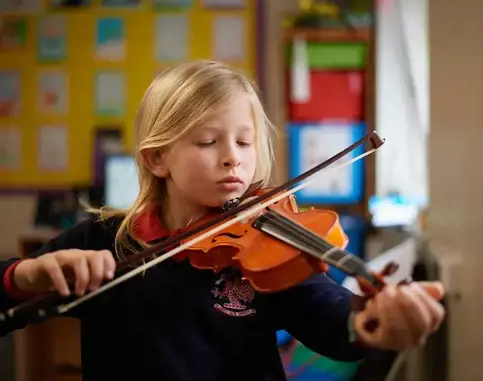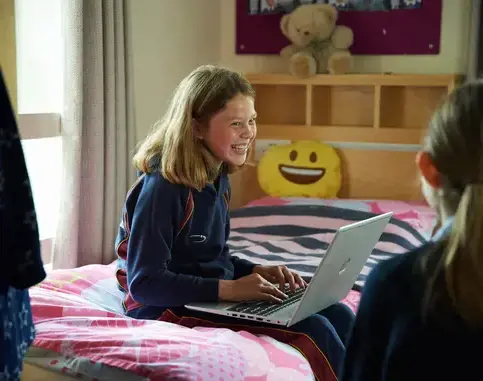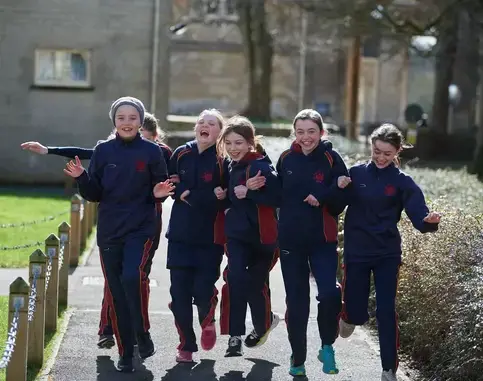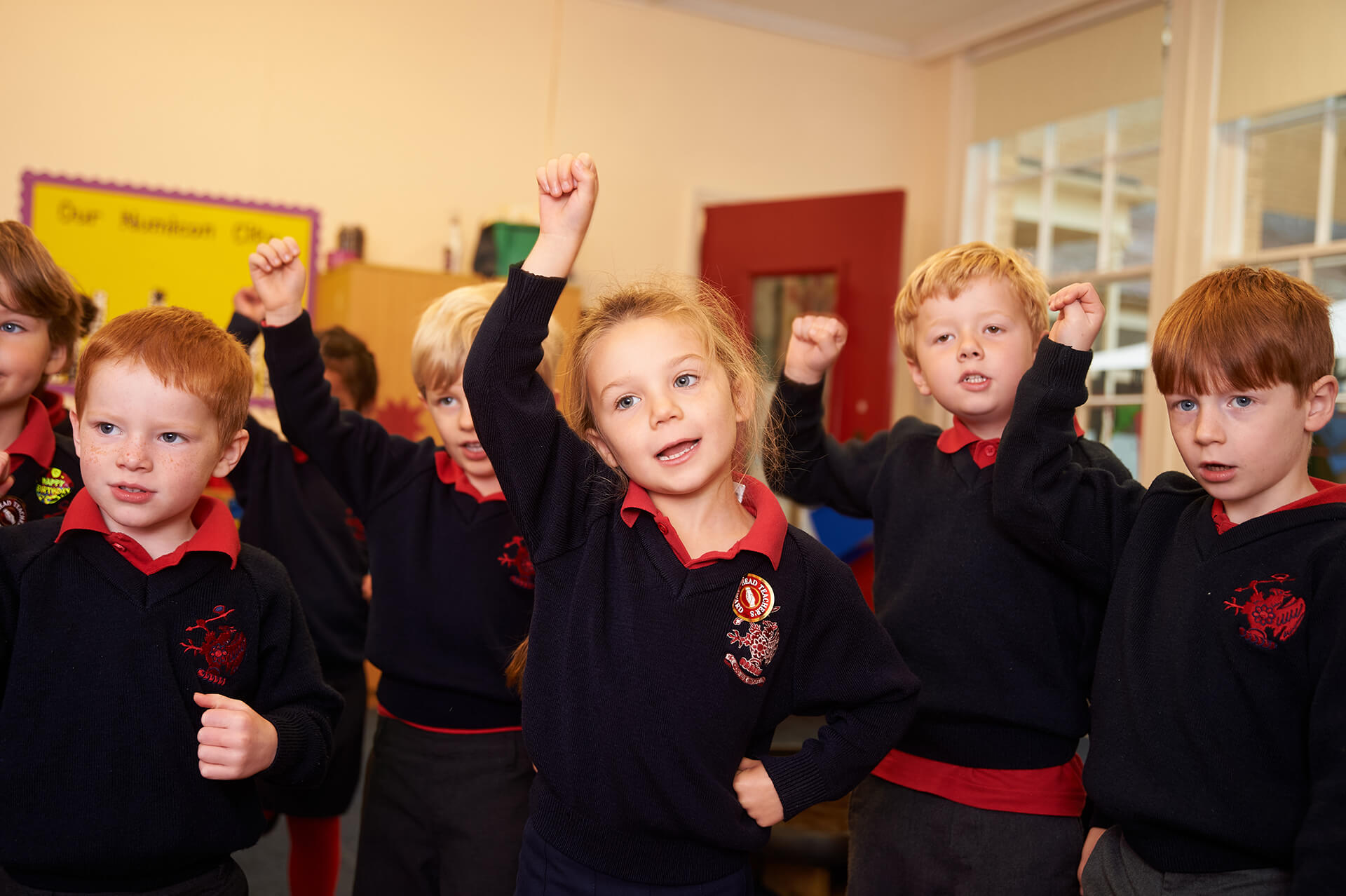Nurturing Social Development in Early Childhood
Social skills are vital for young children as they learn to navigate the world around them. These skills, which include sharing, taking turns, listening, and cooperating, form the foundation for building healthy relationships, solving problems, and developing emotional intelligence. During the early years, children are constantly learning how to interact with others, express themselves, and understand social cues.
A nursery setting plays a crucial role in developing these social skills, providing children with a structured environment where they can interact with peers and practice these skills in a supportive setting. At Rendcomb Nursery, we prioritise social development as part of our approach to early childhood education. Our experienced staff and nurturing environment create opportunities for young children to learn through play, group activities, and guided interactions that promote friendship and cooperation.
By focusing on developing positive social behaviours from an early age, we set children up for success both in school and in life. At Rendcomb Nursery, we believe in the power of friendships and social development to help children grow into confident, compassionate individuals.
What Are Social Skills and Why Do They Matter?
Social skills are the abilities we use to communicate, interact, and build relationships with others. These fundamental social skills are critical as children begin to interact with their peers and develop a sense of empathy and emotional intelligence.
Research shows that strong social skills early on are linked to numerous long-term benefits, including improved emotional regulation, resilience in challenging situations, and better problem-solving abilities. By developing these skills in the early years, children are better equipped to navigate future social situations, both inside and outside of school.
Furthermore, early friendships play a significant role in social development. Through friendships, children learn how to navigate emotional experiences like frustration, jealousy, and joy. These interactions not only teach children how to express their emotions but also foster a sense of belonging and self-worth.
At Rendcomb Nursery, we understand the importance of developing these early social skills. Our curriculum is designed to support your child’s personal, social, and emotional development in a safe and engaging environment.
How Nursery Supports Social Skill Development
It can be remarkable seeing the difference in your child as they begin their journey at nursery. This is thanks to a range of different skills and activities that can support their growth.
Structured Play and Activities
One of the most effective ways children develop social skills is through play. At Rendcomb Nursery, we incorporate structured group activities and games that promote teamwork and communication. Whether it's a collaborative art project, a group storytelling session, or a team-building exercise, these activities help children practice how to share ideas, take turns, and solve problems as a group.
Role play is also an essential part of our curriculum, where children act out different social scenarios. This helps them learn to navigate various social situations, build empathy, and understand the perspectives of others. Play allows children to work through conflicts, learn to compromise, and build resilience—skills that will serve them for the rest of their lives.
Routine and Stability
A consistent routine is crucial for developing social skills. When children know what to expect throughout the day, they feel more secure and confident in their interactions. At Rendcomb Nursery, we ensure that children are familiar with the daily schedule, from snack time to story time and outdoor play, which helps them engage more fully with other children and staff.
Children who feel secure in their environment are more likely to take the initiative in social interactions. They become more open to trying new things, making friends, and practising social behaviours without fear or anxiety.
Guided Interaction
In addition to providing opportunities for independent play, the skilled nursery staff at Rendcomb Nursery actively guide and encourage positive social behaviours. Our experienced staff members model and reinforce key social skills, such as polite greetings, sharing, and listening, and they intervene when necessary to resolve conflicts and promote positive interactions.
By guiding children through these early social interactions, we help them build the confidence and skills they need to succeed in both group settings and one-on-one relationships. This guidance is essential in ensuring that children learn to interact respectfully and kindly with others, forming the basis of lasting friendships.
The Importance of Friendships in Early Years
Friendships are one of the most important aspects of social development in early childhood. The benefits of early friendships are vast, providing children with emotional support, helping to reduce separation anxiety, and fostering a sense of belonging. When children form friendships, they feel a deeper connection to their nursery community, which promotes a positive self-image and increases their confidence.
Friendships also provide an excellent opportunity for children to learn empathy and understanding. Through play and shared experiences, children begin to understand how to respond to the emotions of others, how to express their own feelings, and how to work together towards a common goal.
As a parent, you can support your child’s friendship development by encouraging playdates and arranging opportunities for social interactions outside of nursery. These interactions allow children to continue developing their social skills in a variety of settings.
Practical Tips for Parents to Support Social Development
Encourage Playdates
Arranging playdates is one of the best ways to support your child’s social development. Try to schedule regular playdates with friends from nursery or neighbours, ensuring your child has the opportunity to interact with others in a relaxed, familiar environment. When setting up playdates, it’s important to balance structure and free play. Offer opportunities for both children to engage in cooperative activities, such as building a fort, playing a board game, or sharing a snack.
Model Positive Behaviour
Children learn a great deal through observation, so it’s important to model positive social behaviour. Demonstrate empathy, kindness, and respect in your own interactions. When your child sees you resolving conflicts calmly, sharing with others, and showing understanding, they are more likely to imitate these behaviours in their own relationships.
Talk About Friendships
Make it a habit to ask your child about their friends and their experiences at nursery. Ask open-ended questions like, “Who did you play with today?” or “What did you and your friend do together?” Encouraging these conversations helps children reflect on their social experiences and solidify their understanding of friendship and cooperation.
Read Together
Books are a fantastic way to teach children about social skills and the value of friendships. Some wonderful books that focus on themes of cooperation and friendship include "The Rainbow Fish" by Marcus Pfister and "How Do Dinosaurs Play with Their Friends?" by Jane Yolen. These books can prompt important conversations about sharing, taking turns, and being a good friend.
Why Choose Rendcomb College Nursery for Social Development?
At Rendcomb Nursery, we offer a nurturing, inclusive environment where children can develop essential social skills through structured activities, guided interactions, and relationships. Our expert staff create a positive atmosphere where each child feels valued and supported, and our varied programmes, including group art projects and outdoor play, foster social, emotional, and personal development.
If you're looking for a nursery that prioritises the social development of your child, we invite you to explore all that Rendcomb Nursery has to offer. Our commitment to building lasting friendships and positive social interactions makes us the ideal place for your child's early years.
Developing social skills in nursery is essential for laying the foundation for emotional intelligence, problem-solving, and resilience in later life. By encouraging positive interactions, friendships, and cooperative play, we help young children navigate social situations and build meaningful relationships. At Rendcomb Nursery, we’re proud to offer a safe, supportive environment where children learn and grow together, building friendships that last a lifetime.

